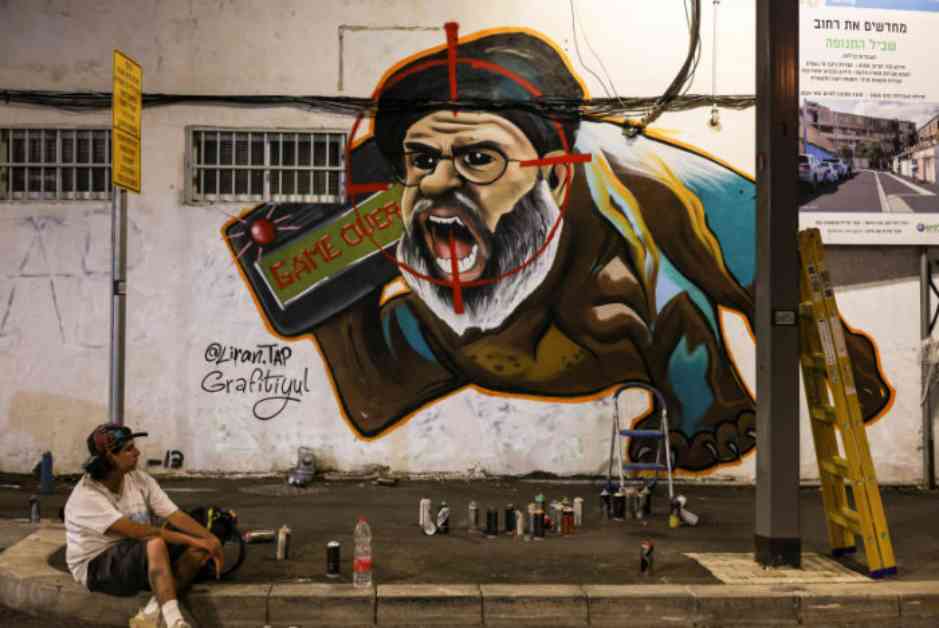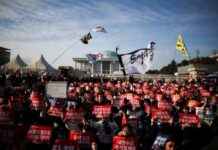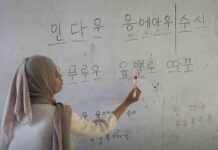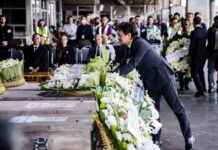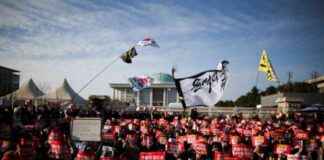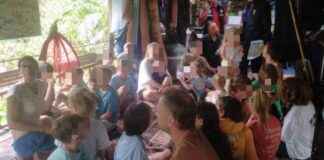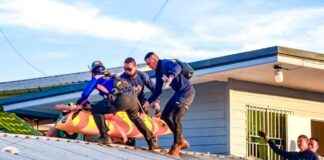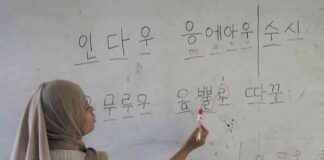Israel Launches Airstrikes on Lebanon, Escalating Tensions with Hezbollah
In a significant escalation of tensions, Israel carried out airstrikes on multiple targets in Lebanon on Sunday, increasing pressure on the Iran-backed Hezbollah group. The strikes came after Israel confirmed the elimination of Hezbollah leader Sayyed Hassan Nasrallah in a Beirut airstrike.
Israeli graffiti artist Maayan, from the Grafitiyul group, was captured resting after completing a graffiti of Nasrallah in Tel Aviv, Israel. The Israeli military stated that the air force had targeted “dozens of Hezbollah terror targets in Lebanon, including launchers aimed at Israeli territory, weapon storage structures, and additional terrorist infrastructure.”
Hezbollah’s Response and Continued Conflict
Following Nasrallah’s death, Hezbollah vowed to continue fighting against Israel and launched rockets at Israeli territory, including a salvo on Sunday morning. The conflict between Hezbollah and Israel has intensified, raising concerns about a potential broader regional conflict involving Iran, Hezbollah’s main supporter, and the United States.
Lebanon has faced heavy casualties, with 33 people reported killed in Israeli strikes on Saturday alone. The total toll since hostilities began on October 8 has surpassed 1,670, including 104 children. Displaced families in Beirut have sought refuge in public areas like Zaitunay Bay, highlighting the dire humanitarian situation.
International Response and Calls for Ceasefire
In response to the escalating violence, the United Nations’ World Food Programme has initiated an emergency operation to provide food to up to 1 million people affected by the conflict in Lebanon. World leaders, including US President Joe Biden, have condemned the violence and called for a ceasefire to prevent further escalation.
Israeli Prime Minister Benjamin Netanyahu defended the airstrike that killed Nasrallah, describing it as a necessary step to shift the balance of power in the region. Biden expressed support for Israel’s right to self-defense but urged for a cessation of hostilities. Iran’s Supreme Leader Ayatollah Ali Khamenei vowed to avenge Nasrallah’s death and continue the fight against Israel.
Humanitarian Impact and Regional Concerns
The ongoing conflict has had a devastating impact on civilian populations, with many families displaced and facing food shortages. The destruction of infrastructure and loss of life have led to a humanitarian crisis in Lebanon. Concerns about the conflict spreading beyond the region have prompted calls for international intervention to de-escalate the situation.
In conclusion, the airstrikes on Lebanon by Israel have heightened tensions with Hezbollah and raised fears of a wider regional conflict. The humanitarian crisis resulting from the violence underscores the urgent need for a ceasefire and diplomatic efforts to resolve the conflict peacefully. The international community must work together to prevent further escalation and protect the lives of innocent civilians caught in the crossfire.
